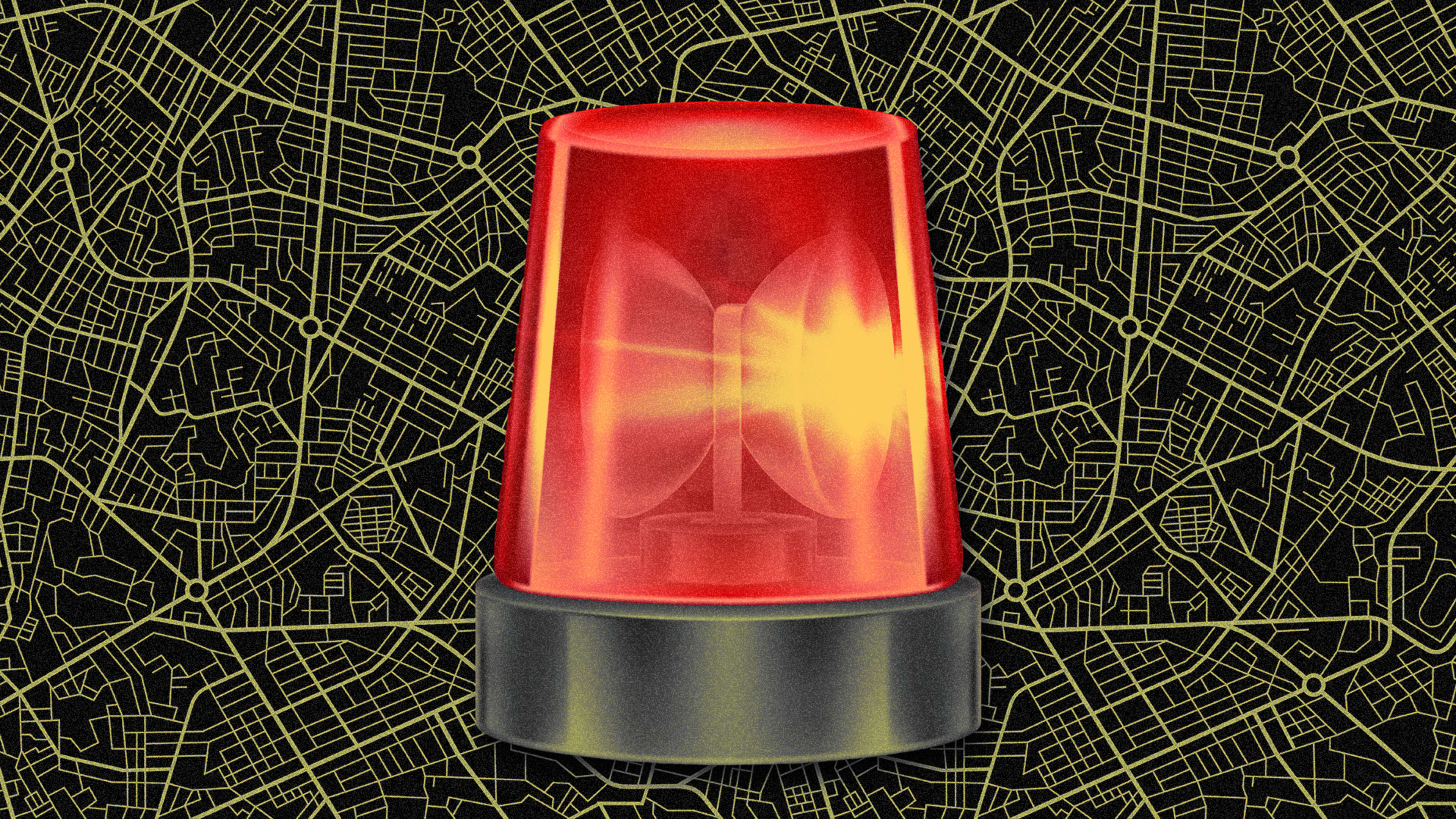Policing and police violence are at the forefront of public conversation. Some in the tech industry think they can help transform policing with apps, but the results have so far been disastrous, especially with the Citizen app. In essence, Citizen encourages people to take the law into their own hands. It was once called Vigilante. Yes, Vigilante. And its backers didn’t give up when it was booted from Apple’s App Store for encouraging anyone who uses it to take often dangerous matters into their own hands (in other words, vigilantism). They just changed its name to Citizen.
Chances are you’ve heard of Citizen. It was the top-ranked news app in 2020, has more than 7 million users, and is available in at least 30 cities, including New York, Los Angeles, Chicago, Phoenix, and the Bay Area.
Created by Spon Inc., Citizen bills itself as a “personal safety network that empowers you to protect yourself and the people and places you care about.” It offers COVID-19 contact tracing, access to real-time 911 alerts, instant help from crisis responders, and “safety tracking” for friends and families.
Citizen believes that mass surveillance will make us safer. A blog post from 2016 wondered, “What if everyone within a quarter mile of every reported crime were immediately made aware of it? What if there were a camera on every crime? What if transparency existed—if we all knew where crime was occurring and how it was being resolved? Would crime as we know it still exist? Transparency is the single most powerful tool against crime and injustice, and we believe it will rebuild cooperation towards a shared vision. Cooperation, in turn, will lead to safer communities, better cities, and a stronger nation.”
In reality, a culture of mass surveillance leads to the creation of apps like Nextdoor, which is known as much for accusations of racial profiling as for enabling friendly neighborhood tips. Like Nextdoor, Citizen easily lends itself to racial bias, harassment, and greater surveillance. One notable example occurred in May, with a Citizen livestream. Receiving over a million views, the livestream started a manhunt in California after Citizen founder and CEO Andrew Frame personally offered a $30,000 bounty for information leading to the arrest of a suspect believed to be the source of a recent wildfire. It resulted in Citizen misidentifying a homeless man. At the time, a Los Angeles police spokesperson described the app’s capabilities as potentially “disastrous.”
“The [Citizen] app gives people the power to say who is and who isn’t suspicious, and who belongs in their community,” Matthew Guariglia, a policy analyst at the nonprofit privacy watchdog Electronic Frontier Foundation, told CBS MoneyWatch. “These apps are a digital superhighway for racial profiling.”
On June 28th in Oakland, journalist Davey D tweeted about a false report submitted by a Citizen user concerning “30 men armed with guns” in his neighborhood, which turned out to be a small gathering of family and friends enjoying a movie and dancing.
Last night @CitizenAppSFO allowed a blatant false report about 30 men armed with guns guns fighting over at Lake Merrit..Because there was an unfortunate shooting at the Lake last week, many freaked out when they this alert … cc @CatsCommentary pic.twitter.com/DGEFbNdas4
— Davey D (@mrdaveyd) June 28, 2021
None of these false alarms have deterred Citizen, which plans to make the app indispensable to local police forces. Citizen also recently tested an on-demand private police force that could be summoned with the app—but they abandoned the plan after a one-month pilot.
What can be done about Citizen and similar apps? Apps that encourage people to fear and turn in “suspicious” neighbors, start manhunts based on nothing, and turn a party into a “riot”? False crime reports give weight to police claims of needing larger budgets, which is the opposite of the change so desperately needed in law enforcement. The call to defund police is a wake-up call for more of us to look at community-based solutions, not more potentially violent policing, or dangerous apps that further criminalize Black and brown people. The tech we use should help us look out for one another, not spy on one another and create more fear.
Granate Kim is a campaign manager at Kairos Action who writes about tech and racial justice.
Recognize your brand’s excellence by applying to this year’s Brands That Matter Awards before the early-rate deadline, May 3.
